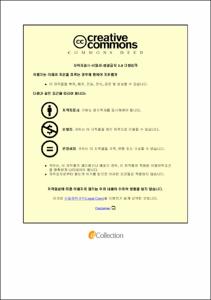특성화고등학교 식품가공관련학과 NCS기반 교육과정 분석
- Abstract
- Analysis of National Competency Standards(NCS)-Based Curriculums in Food Processing-Related department at Specialezed High Schools
Lee Yong-suk
Graduate School of Education
Pukyong National University
Abstract
This study set out to analyze the current management of the food processing department at specialized high schools and its curriculum based on NCS, which represents the Revised Curriculum of 2015 that began in the school year of 2018, proposing directions for vocational education in food processing to react to the industrial field and providing basic data helpful for the reorganization and settlement of the food processing department as an NCS-based curriculum.
For these purposes, the investigator examined the NCS-based curriculum of the food processing department as part of literature study and chose the food processing department across the Gyeongnam and Jeonnam regions where the agriculture, fishing and marine industries were similar as part of case study. Four schools were selected in Gyeongnam and Jeonnam each by the line, and their homepages and school notifications about "Matters of Curriculum Organization, Management, and Evaluation" were examined to compare and analyze the Revised Curriculum of 2015 among them.
The comparison and analysis results of the curriculum among the schools would help to propose effective management plans for the food processing department in Gyeongnam according to the introduction of the NCS-based curriculum.
The subjects were divided into general and specialized ones, and the latter were further divided into basic and practice ones. Correlations between the credit units of each subject and the percentage of students advancing to college or getting a job after graduation were examined to propose directions for the improvement of the food processing department.
The findings were as follows: first, the study compared the percentage of general and specialized subjects and the college entrance and employment rates of graduates and found that the college entrance and employment rates of graduates were high at schools with a higher percentage of general and specialized subjects, respectively. As for comparison results between the two regions, the schools of Gyeongnam recorded a little bit lower percentage of specialized subjects, higher college entrance rate, and lower employment rate than their counterparts of Jeonnam.
Secondly, Specialized Subjects II were divided into basic and practice ones to compare the college entrance and employment rates of graduates.
The results reveal that the employment rate of graduates was high at schools with a higher percentage of practice subjects. There were differences in specialization according to regions and schools with no differences found according to the lines.
The schools of Gyeongnam tended to be lower in the percentage of practice subjects and accordingly in the employment rate than those of Jeonnam.
The employment rate was overall high at schools that organized practice subjects according to the specialization of self-supporting agriculture, tea industry, and marine industry.
In short, there is a need to expand NCS practice subjects whose adjustment to industries is high and organize specialized curriculums according to the local food industry in order to increase the employment rate of food processing-related departments in Gyeongnam according to the goals of specialized high schools that allocate huge budges to specialized education for the employment of graduates.
- Issued Date
- 2019
- Awarded Date
- 2019. 2
- Type
- Dissertation
- Publisher
- 부경대학교
- Affiliation
- 부경대학교 교육대학원
- Department
- 교육대학원 수산교육전공
- Advisor
- 원효헌
- Table Of Contents
- Ⅰ. 서 론 1
1. 연구의 필요성과 목적 1
2. 연구문제 3
Ⅱ. 이론적 배경 4
1. 특성화고등학교 개념 4
2. 국가직무능력표준(NCS) 10
3. 특성화고등학교 NCS기반 교육과정 20
4. 특성화고등학교 식품가공과 NCS기반 교육과정 30
Ⅲ. 연구방법 35
1. 연구대상 35
2. 분석방법 36
3. 연구절차 37
Ⅳ. 결과 및 논의 38
1. 특성화고 식품가공관련학과 지역분포와 명칭 38
2. 특성화고 식품가공관련학과 교과교육과정 분석 51
3. 교육과정 편성내역과 진학률 취업률과의 관계 75
Ⅴ. 결론 및 제언 81
1. 결론 81
2. 제언 84
3. 연구의 한계점 85
참고문헌 86
- Degree
- Master
- Files in This Item:
-
-
Download
 특성화고등학교 식품가공관련학과 NCS기반 교육과정 분석.pdf
기타 데이터 / 1.56 MB / Adobe PDF
특성화고등학교 식품가공관련학과 NCS기반 교육과정 분석.pdf
기타 데이터 / 1.56 MB / Adobe PDF
-
Items in Repository are protected by copyright, with all rights reserved, unless otherwise indicated.